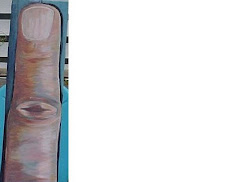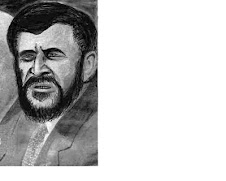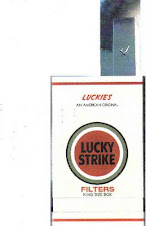| The Hetman of Ukraine |
Having read Mikhail Bulgakov's, "The Master and Margarita" several times, and always finishing it with a hunger for more, when I saw "The White Guard" on the library's shelf, I grabbed it. But since I'd been hoping for another riotous romp, despite the back-cover blurbs, I was at first disappointed at the historical fiction it turned out to be. But not for long. Not with what's happening in Ukraine now. Because, although the events described in the novel occurred almost exactly a century ago, and were a result of the first War to end All War (hahahahaha!), which has its own modern parallel in the US fiction of Waging eternal War to keep the therefore non-existent peace, they have strong parallels to the chaos of the present-day Ukraine, and indeed, suggest many of the roots of that conflict and the unlikelihood that those will be resolved any time soon.
It is Kiev in 1918, as evidenced by its location along the Dnieper, but referred to in the novel only as 'The City', where the Socialists - considered by the Turbins, the family at the heart of the novel, in the same way as tea party Republicans consider any idea of socialism today - are encamped outside the city with their hated leader Petlyura preparing to besiege the Capital. The Turbins and their allies are what the title refers to, The White Guard, strongholds of support for a return to Tsarist Russia, who still can't bring themselves to believe that the Tsar, and therefore their privileged position (deserved, of Course) at the top of the heap, is dead.
Bulgakov refers to it as "The Ukraine", a nomenclature current-day Ukrainians object to, and one can understand why, when you read of their separate identity from the Russians who soon enough appear in turn outside the city's gates to roust the Socialists as The Reds from Russia encircle the city and prepare to take it over. So you can see just from this the close parallels to the situation today that there isn't just pro and con, you're either with us or against us, dynamic, but a political stance is possible that can be in complete opposition to the Nationalistic one, yet could be pro-communist, so that when you hear the press refer to the right-wing present day Ukrainian as 'Nazi', you wonder if their conflating National Socialism with Nazism, or if in fact their is an anti-Semitic element to it.
On that last point, there is a scene toward the end of the novel when Petlyura's Socialists are about to be driven from the City by The Reds, when Bulgakov describes one of the cruelest events in the book as an armed and angry 'Socialist', a cossack sergeant on horseback, exhibits distinctly antisocial and in fact, barbarous, behavior as he rides on his horse hitting a man over the head with a ramrod as the man's head jerks with each blow:
"The ramrod cut hard and viciously into the tattered coat and each time the man responded with a hoarse cry.
'Ah, you dirty Yid!', the sergeant roared in fury. 'We're going to see you shot! I'll teach you to skulk in the dark corners. I'll show you! Spy!...'
But the bloodstained man did not reply to the cossack sergeant who then ran ahead flailing the heavy rod with its heavy, glittering brass tip. Without calculating the force of the blow the sergeant brought down the ramrod like a thunderbolt on to the man's head. Something cracked inside it and the man in black did not even groan. Thrusting up his arm, head lolling, he slumped from his knees to one side and with a wide sweep of his other arm he flung it out as though he wanted to scoop up more of the trampled and dung-stained snow. His fingers curled hook-wise and clawed at the dirty snow. Then the figure lying in the dark puddle twitched convulsively a few times and lay still."
In this act of violence and brutal revenge against anyone helpless enough to cross his path, it's easy for us to condemn and forget that, besides the Russians and the Reds and the Socialists, the Ukranians also had the Hetman to contend with, and his betrayal, as, in the middle of the night, he slithered out of town leaving the White Guard alone, still thinking, however, that they had the backing of the legitimate government of the Post-War period on their side. But the anti-Semitic undertone in this act of heartless brutality has echoes in the current-day nature of the Nationalistic movement today. The only people "strong enough to oust the Hetman and the Germans were the Bolsheviks, but the Bolsheivks themselves were not much better: nothing but a bunch of Yids and commissars. The wretched Ukrainian peasants were in despair; there was no salvation from any quarter."
Then as now,
"There were tens of thousands of men who had come back from the war, (this time in Afghanistan?) having been taught how to shoot by those same Russian officers they loathed so much. In little towns there were countless teachers, medical orderlies, smallholders, Ukrainian seminarists, whom fate had commissioned as ensigns in the Russian army, healthy sons of the soil with Ukrainian surnames who had become staff-captains - all of them talking Ukrainian, all longing for the Ukraine of their dreams free of Russian landlords and free of Muscovite officers; and thousands of Ukrainian POW's returned from Austrian Galicia."
And who/what was this Hetman, that, to western ears, sounds so much like 'hitman'? The position and title comes from the 17'th century, but after WW1 was reestablished in 1918 by the Ukrainian General Pavlo Skoropadsky, a descendant of the former Hetman of Ukraine Ivan Skoropadsky. The Law announced at the session of the Central Council of Ukraine on April 29, 1918 laid a legal groundwork for the new position. Pavlo Skoropadsky transformed Ukraine into the autocratic Ukrainian State under the protectorate of the Central powers, while expelling the Bolshevik forces of the Russian SFSR. During his term the Communist Party was prohibited on the territory of Ukraine for the first time. After the uprising led by the Directorate of Ukraine, Pavlo Skoropadsky surrendered the title, transferring the state power to the Cabinet of Ministers of Ukraine and fleeing into Germany, disguised, as per Bulgakov, as a bandaged-up patient, like a tale from Agatha Christie.
Meanwhile, the landlord downstairs form the Turbins, our White Guard stalwarts, is, having been robbed by brigands, declaring that what they need is autocratic rule. A not-uncommon desire of all nations that are peopled by a single ethnic constituency. For all of the USA's failings, and any reader of my posts knows I find many, that is one saving grace of its immigrant-based population, it is hard to do ethnic cleansing when no one knows what ethnicity to 'cleanse'. But it also means we have no understanding for, respect of, nor experience with, the fervent desire to just get rid of all these 'ferrin' elements, nor the underlying belief that that'll make everything 'normal' somehow, but other, perhaps, especially in troubled Eastern Europe, countries have no such qualms about living only with their own kind, the ultimate expression, as I noted when Reagan first started using the term, of Family Values, with its idealization of the Nuclear family, but its ugly side of intolerance and bigotry reinforced by a paternalistic authoritarian, Christianity.
So here they sit, the struggling Ukrainians, Russia on one side, Germany, now buttressed by a NATO, that has no more regard for international Law than the Russians they condemn, on the other, and an internal drive for Autarky battling with a desire for Democracy, and an economy that's run by a bullying, bandito-minded oligarchic elite, the inevitable result of the Milton Freidmanization of the economy, while the West wonders how this could ave happened. A good reading of Bulgakov's "The White Guard" might shed a little light on that, but, unfortunately, won't help a whit in solving that suffering country's ongoing, but now, all-but-ignored, dilemma.



















































No comments:
Post a Comment